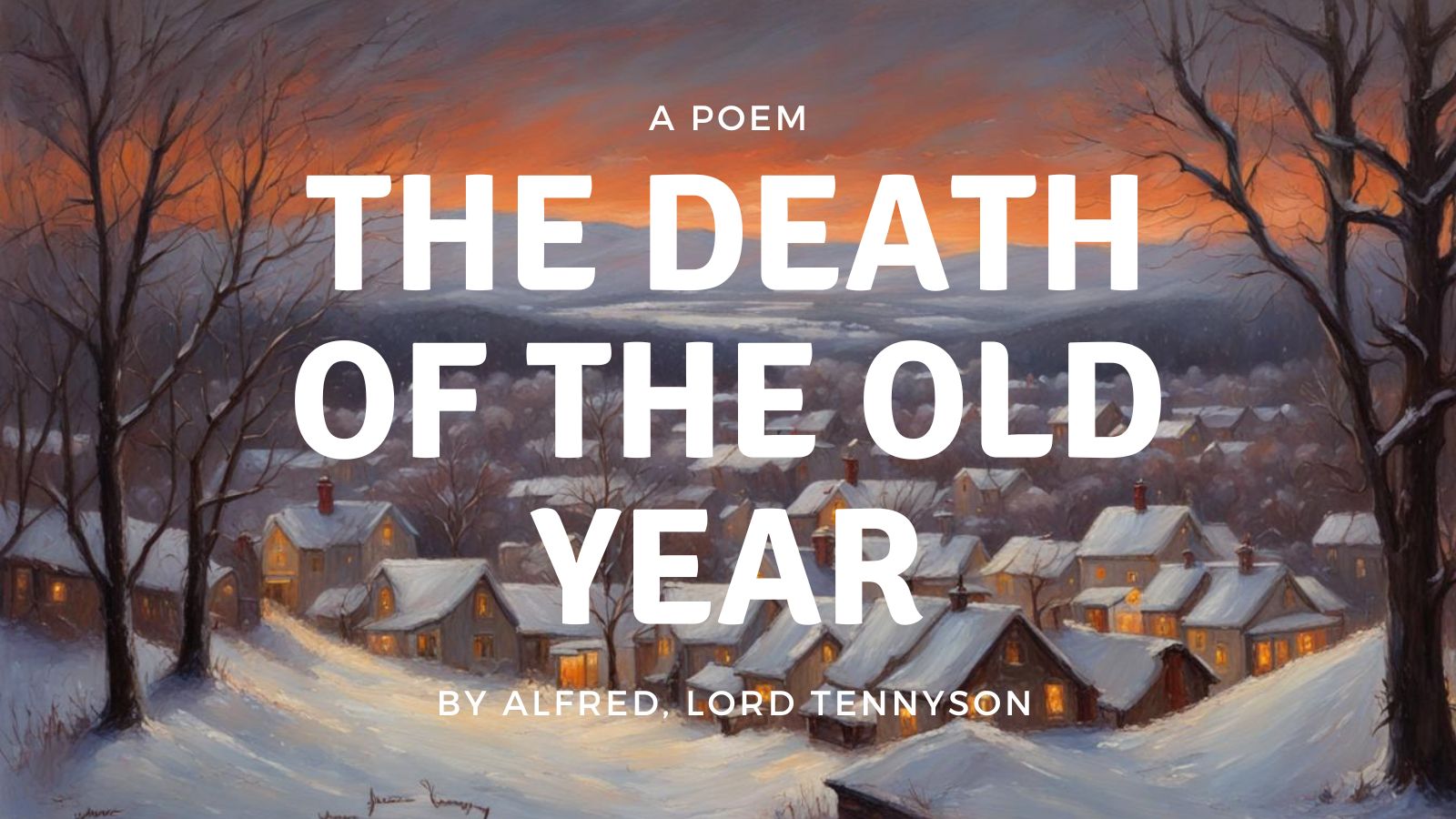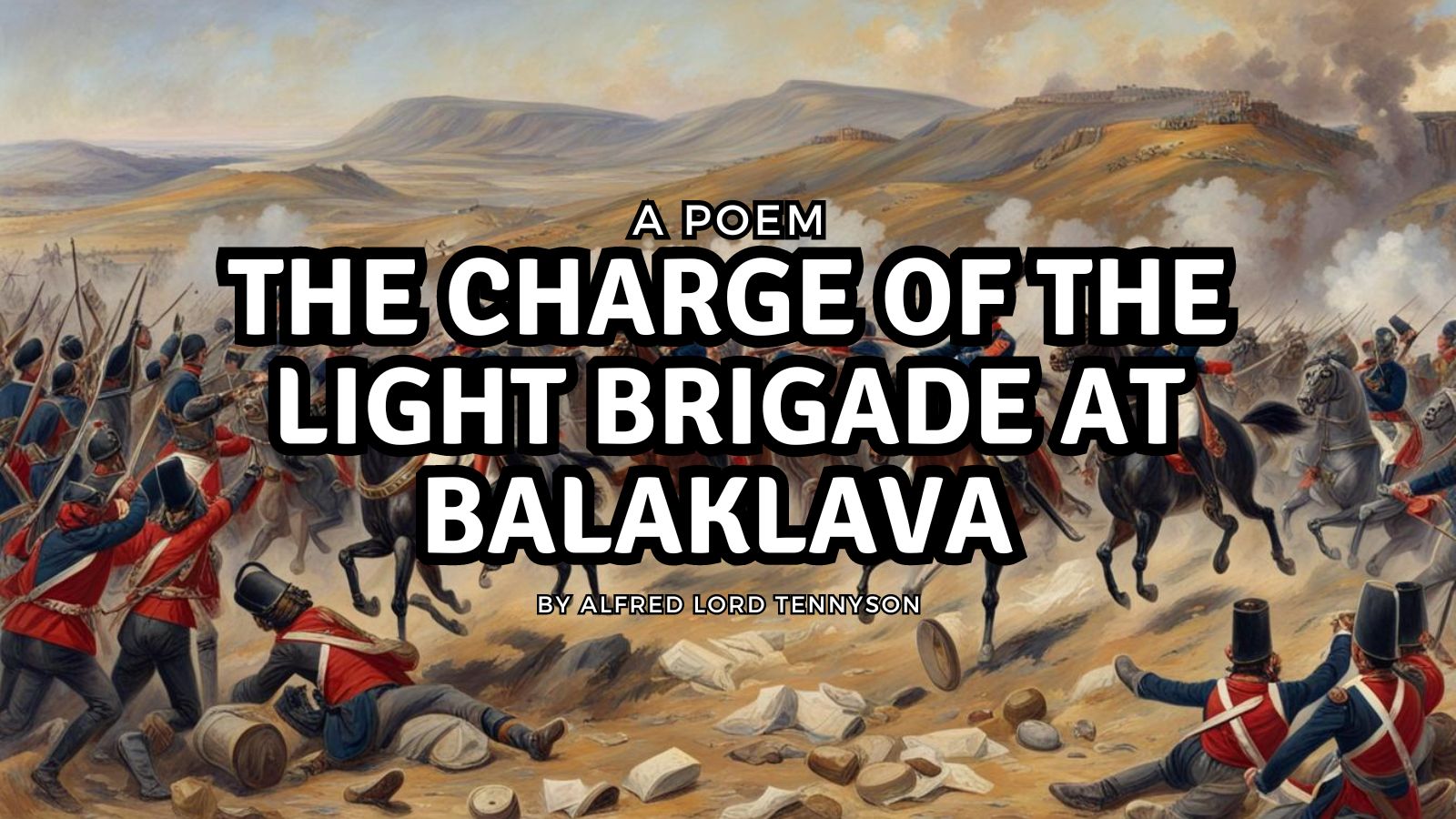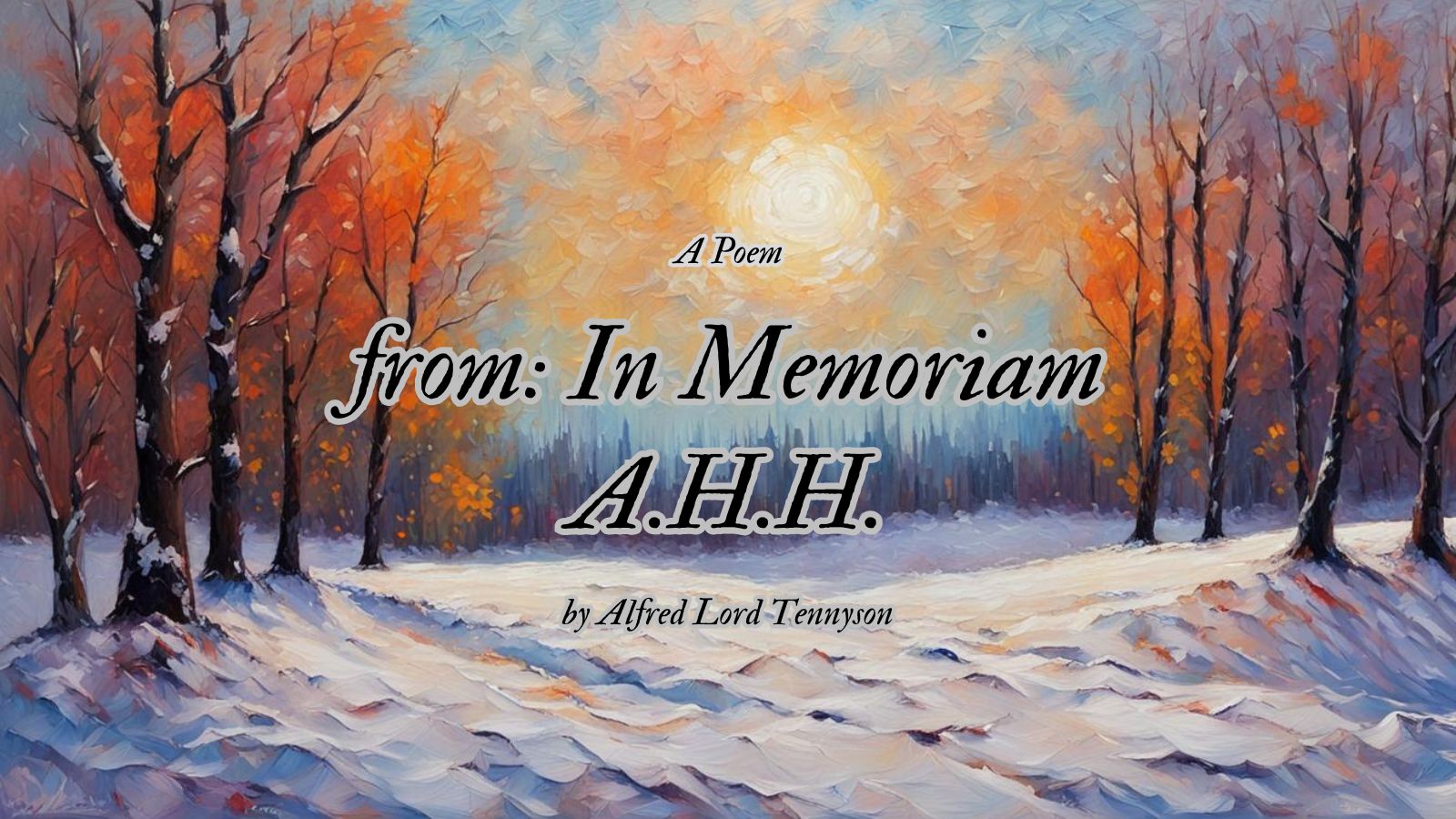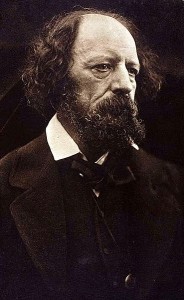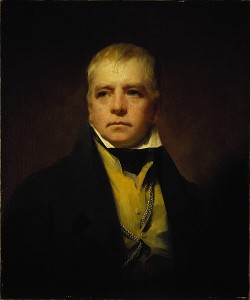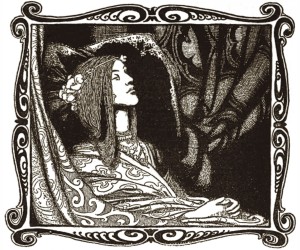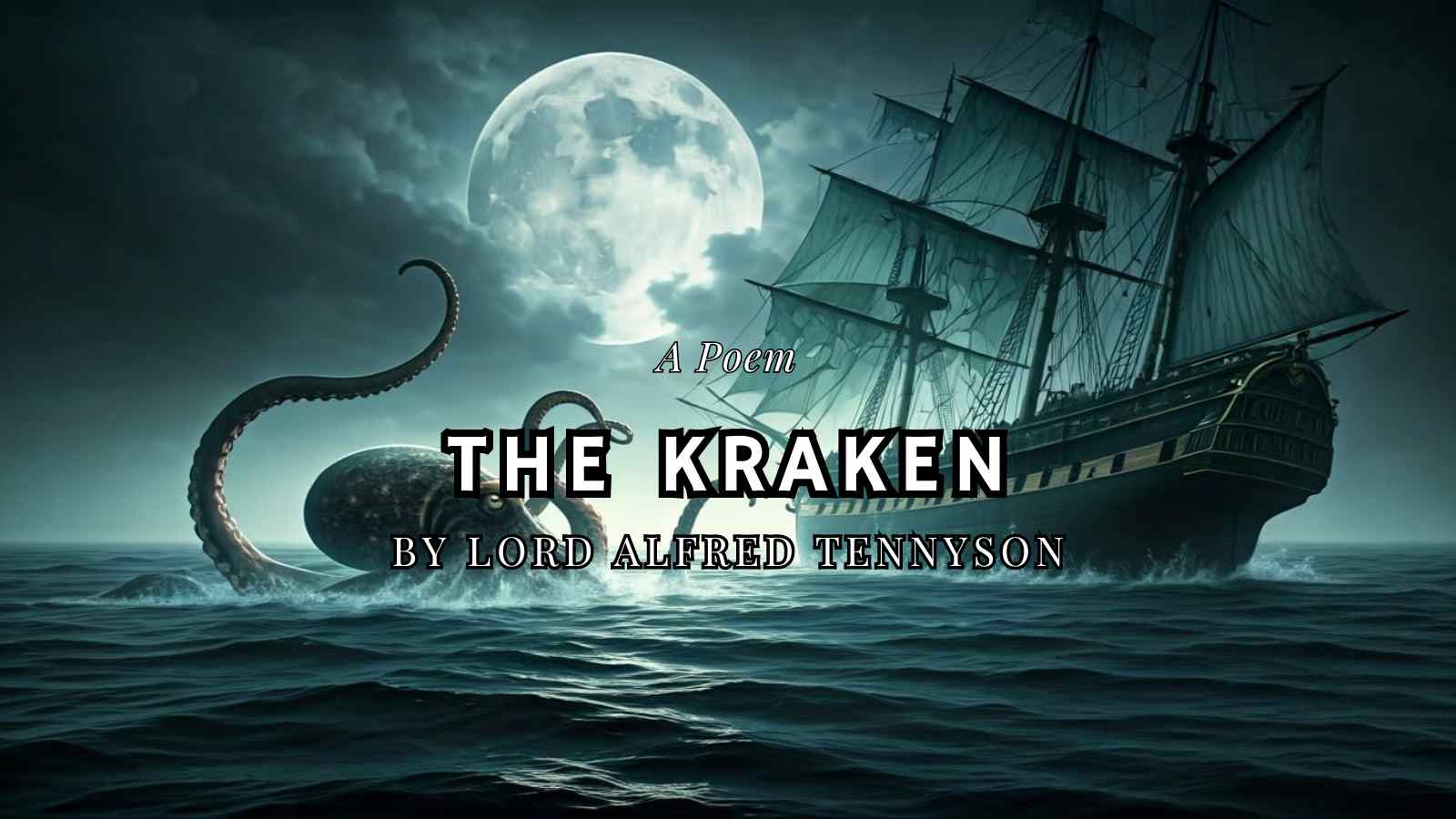
The Kraken
by Lord Alfred Tennyson
(1809-1892)
Below the thunders of the upper deep,
Far, far beneath in the abysmal sea,
His ancient, dreamless, uninvaded sleep
The Kraken sleepeth: faintest sunlights flee
About his shadowy sides; above him swell
Huge sponges of millennial growth and height;
And far away into the sickly light,
From many a wondrous and secret cell
Unnumber’d and enormous polypi
Winnow with giant arms the lumbering green.
There hath he lain for ages, and will lie
Battening upon huge sea-worms in his sleep,
Until the latter fire shall heat the deep;
Then once by man and angels to be seen,
In roaring he shall rise and on the surface die.
Bio
Alfred, Lord Tennyson (1809-1892) was a prominent British poet of the Victorian era. Here’s a brief biography:
Alfred Tennyson was born on August 6, 1809, in Somersby, Lincolnshire, England. He was the fourth of twelve children in a rector’s family. Tennyson showed an early aptitude for writing, composing a 6,000-line epic poem at the age of twelve.
He attended Trinity College, Cambridge, where he joined a group of intellectuals known as the “Apostles.” His first collection of poems, published with his brother Charles, appeared in 1827.
Tennyson’s career as a poet took off in the 1830s and 1840s with works like “The Lady of Shalott” and “Ulysses.” His collection “Poems” (1842) established him as the leading poet of his generation.
In 1850, Tennyson was appointed Poet Laureate, succeeding William Wordsworth. That same year, he married Emily Sellwood, with whom he had two sons. His long poem “In Memoriam A.H.H.” (1850), written in memory of his friend Arthur Henry Hallam, became one of his most famous works.
Other notable poems include “The Charge of the Light Brigade” and “Idylls of the King.” Tennyson was known for his command of melody, rich descriptive power, and ability to blend social commentary with romantic imagery.
He was made a baron in 1884, becoming the first British writer elevated to the peerage for his literary work alone. Tennyson died on October 6, 1892, at the age of 83, leaving a lasting legacy as one of the most popular British poets in history.
Summary
“The Kraken” by Lord Alfred Tennyson is a sonnet that vividly describes a mythical sea creature sleeping in the depths of the ocean. The poem paints a picture of an ancient, enormous being resting in the abyssal darkness, far below the surface storms. Around the Kraken, strange and massive sea life flourishes, including huge sponges and giant polyps. The creature has remained in this state for ages, feeding on sea worms in its sleep. The poem concludes with a prophetic vision: the Kraken will rise to the surface only at the end of times, when the world is consumed by fire. In this final moment, it will be seen by humans and angels alike, only to die as it reaches the surface. Tennyson’s work blends elements of myth, natural wonder, and apocalyptic imagery to create a haunting portrait of a legendary sea monster and its ultimate fate.
Guided Questions
Here are 10 guided questions for “The Kraken” by Lord Alfred Tennyson:
- How does Tennyson create a sense of depth and vastness in the opening lines of the poem?
- What does the phrase “ancient, dreamless, uninvaded sleep” suggest about the Kraken’s state of existence?
- How does the imagery of “faintest sunlights” and “shadowy sides” contribute to the atmosphere of the poem?
- What might the “huge sponges of millennial growth and height” symbolize in the context of the poem?
- How does Tennyson use sound and rhythm to enhance the description of the Kraken’s underwater world?
- What is the significance of the phrase “secret cell” in describing the Kraken’s habitat?
- How does the poet’s use of the word “Battening” contribute to our understanding of the Kraken’s existence?
- What does the line “Until the latter fire shall heat the deep” suggest about the Kraken’s fate?
- How does the poem’s final line (“In roaring he shall rise and on the surface die”) create a sense of climax and resolution?
- How might the Kraken be interpreted as a metaphor for hidden knowledge or undiscovered aspects of nature?
